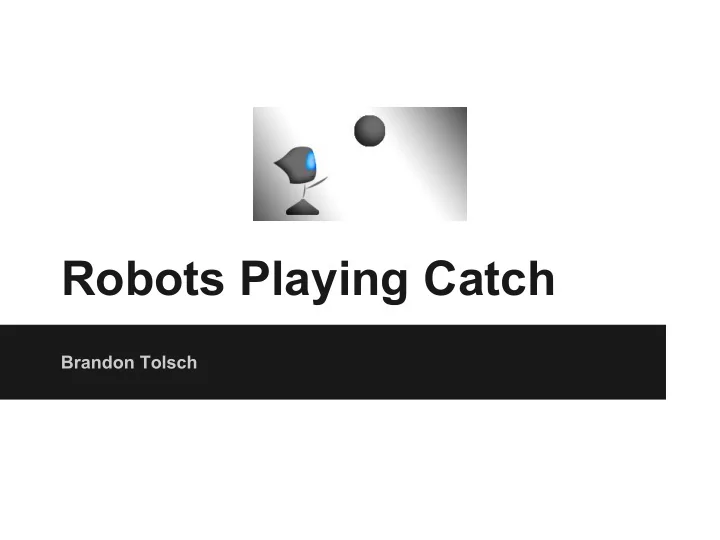

Robots Playing Catch Brandon Tolsch
Brandon Tolsch Robots Playing Catch ● Two robots throwing a ball through the air ● Free to move around on the ground ● Pass back and forth forever ● Never drop the ball 2/9
Brandon Tolsch Robots Playing Catch 3/9
Brandon Tolsch Robots Playing Catch ● Robots: modeled as circles ○ Both collision and catching boundary ○ Constant acceleration ○ In plane z = 0 ● Ball: modeled as point ○ Travels without air resistance ○ Should not go below z = 0 4/9
Brandon Tolsch Robots Playing Catch ● Safety ○ Ball never goes below z = 0 ○ No collisions ● Efficiency ○ Minimal power use ○ Target location optimality ○ Application dependent ● Liveness ○ One doesn’t hold ball forever ○ Robots don’t stand still ○ Also application dependent 5/9
Brandon Tolsch Robots Playing Catch ● Simplifications and Stepping Stones ○ Cannon adjustments ■ Vertical angle, rotation, power ○ Robot motion ■ Stationary, 1D, 2D linear, 2D free ○ Motion timing ■ Motion before pass, after pass 6/9
Brandon Tolsch Robots Playing Catch ● Stationary case already poses problem ○ Evolution domain constraint ○ Solution ○ Condition to restrict solution ○ Solution: change model 7/9
Brandon Tolsch Robots Playing Catch ● One-dimensional motion 8/9
Brandon Tolsch Robots Playing Catch ● Domain constraints can cause trouble ● One-dimensional passing is safe ● Efficiency is application dependent 9/9
Recommend
More recommend